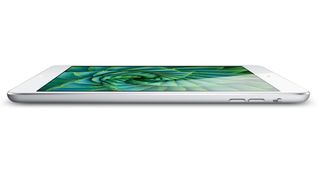Report claims touch system production problems led to iPad mini price
Mini size, big price

Even though the iPad mini was released to much fanfare, the $329 (£204/AU$317) price tag makes the tiny tablet noticeably pricier than similar devices its size.
Grumbles are resonating around the web, with many wondering just what Apple was thinking pricing the 7.9-inch tab well above competitors like Google's Nexus 7 and Amazon's Kindle Fire.
According to a new report, the primary culprit for the mini's pricing is low yield rates for new touchscreen technology called GF DITO (or GF2) found in the slate.
The claim comes from sources speaking with DigiTimes, and though the site is hit or miss on accuracy, this report at least exists in the realm of reality.
Production problems
The new tech allows the mini to measure 23 percent thinner and 53 percent lighter than the full-size iPad. The iPad mini weighs in at 0.68 pounds and is 7.2 millimeters thick - about the same girth as a pencil.
DigiTimes' sources say the DITO film sensors used in the mini have run into mass production issues, making it about 40 percent to 50 percent more expensive that similar 7-inch devices that employ OGS or G/G touch-screen tech.
According to the sources, the GF2 touchscreen modules are actually about $5 (£3.10/AU$4.83) cheaper than the G/G structures Apple still uses for it full-sized 9.7-inch iPads.
Get daily insight, inspiration and deals in your inbox
Get the hottest deals available in your inbox plus news, reviews, opinion, analysis and more from the TechRadar team.
DITO for iPad 4
One analyst predicted Wednesday that Apple was seeking to slim down the iPad 4 by putting GF2 tech into the tablet.
That might mean the fourth-gen iPad would become lighter and thinner, but could cause a bigger drag on consumers' wallets.
However, the analyst remarked the skinnier iPad 4 won't make its way to the market until sometime early next year. By that time, Apple may be able to smooth out it production yields and cut costs.
Since the fourth-generation iPad with Retina display debuted at the same price as its predecessor (starting at $499/£309/AU$482), consumers probably wouldn't be too pleased if Apple bumped up the price in exchange for a lighter tablet.
DigitTimes' sources also added the iPad 2 should see strong sales. In fact, the sources said that we might see the second iPad last until the first quarter of 2013.
Via DigiTimes
Most Popular

